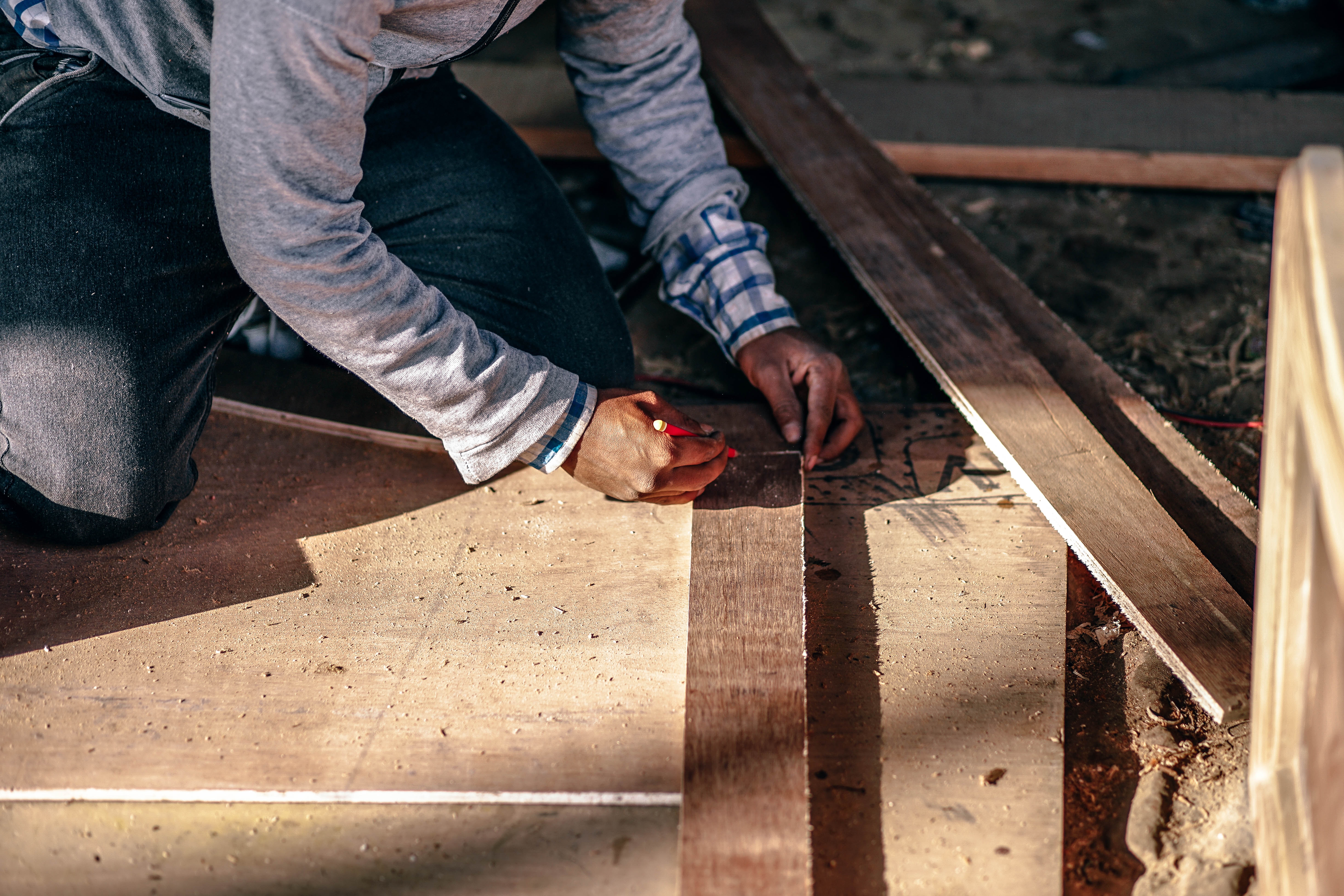Photo by Fancycrave on Unsplash. License
Hiring an interior flooring contractor can be a very exciting and trying time. Your floor is an important part of your home and you want it to be just right. After all, you’ll be looking at the floors for years and they need to be done right. Hiring an interior flooring contractor isn’t much different from hiring any type of contractor.
* Define The Project
It’s important that you write out exactly what the project entails including what type of flooring you want to use. If you want, for instance, hardwood floors, you want someone who is skilled in laying hardwood floors and making them look beautiful. Not every flooring contractor can handle every material.
Be very specific when you define your project. If you want the contractor to handle demolition, construction, and maybe even relocation of pipes and electrical woks this is an important aspect of the project that must be mentioned. Make a complete list of all the materials that you want used, including brand and size.
* Locate Qualified Interior Flooring Contractors
Once you’ve detailed your project list it’s important to now find qualified interior flooring contractors. You have a few options. You can ask friends and family for references. You can even ask your home inspector for ideas of who might be a good choice. Another option is to do a Google Search to find contractors websites that you can review to find contractors to invite to bid. If the project is large, you might even consider posting an advertisement in the local paper asking for bids.
* Screen Contractors
Once you get a list of contractors you can either prescreen them, or you can wait until you get bids from them to screen them. Either way, it’s important to check up on them to ensure that they have the proper licensing, certification, and insurance necessary to perform the work that you want them to do.
You can call city hall and talk to their licensing department to ensure that each contractor has the right licensing. You can also call the BBB to find out what their rating is. With the advent of the Internet you can look them up online to find out if anyone has any complaints about them.
* Interview Contractors
Once you’ve narrowed them down, via checking on them, it’s important to interview them too. Interview them outside of their bids. But you can interview them before or after you’ve received bids. Regardless it’s important to talk to them in person because that is really the only way you can tell if you’ll get along well with the contractors in question.
To make it fair, write down a list of questions to ask them, and ask everyone the exact same questions. Write down their answers as they give them, or record the interview so that you can go through them later when you make your choice.
* Collect Bids
If you didn’t collect bids up front, now it’s time to collect bids from those that you have invited to bid. Ask them to be very detailed on the bidding using your detailed project list and description to make their bid. Be open to answering any questions that bidders have during the bidding process.
* Choose Your Contractor
Now that you have some bids, it’s time to go through each bid with a fine tooth comb. It might help to use a highlighter pen to mark through each item that details what your project description had in it. This way you can make sure they have addressed all the factors in your description. If not, you can write down questions to ask the bidder to fill in the areas they may have missed.
Choosing your contractor is not as simple as choosing the lowest bid. Many times when people compete only on price, there ends up being other charges on the backend. By going over each bid carefully you’ll be able to indicate which bids left some items out that you’d have to pay for later, and which did not. Make your choice.
* Prepare & Sign Contract
Once your choice is made, you or the contractor (more than likely the contractor) will create the contract. Read the contract carefully, if something is missing, ask them to add it to the paperwork before you sign it. Often contractors have standard paperwork that they use for all customers, but there is no reason why you cannot add things to the contract before you sign it.
By doing your due diligence and making sure you go through these steps before hiring an interior flooring contractor you’ll be sure to hire the best contractor for the job and end up happy with the end results.






